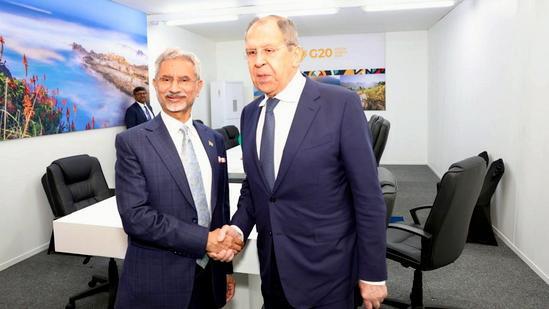
Russia’s Lavrov speaks to Jaishankar amid India-Pakistan conflict
The recent Pahalgam terror attack on April 22 has sent shockwaves across the globe, with India and Pakistan locked in a heightened state of tension. Amidst this escalating conflict, Russia has stepped in to play a mediatory role, with Foreign Minister Sergey Lavrov holding a telephonic conversation with India’s External Affairs Minister S Jaishankar. The conversation, which took place on April 24, was a significant development in the ongoing saga, with Lavrov calling for a peaceful resolution to the conflict between the two nations.
According to sources, Lavrov emphasized the importance of settling the issues between India and Pakistan through political and diplomatic means, as per the provisions of the 1972 Simla Agreement and the 1999 Lahore Declaration. This statement is significant, as it underscores Russia’s commitment to promoting a peaceful resolution to the conflict, one that is in line with the principles of international diplomacy.
The Simla Agreement, signed by India and Pakistan in 1972, is a foundational document that sets out the parameters for resolving disputes between the two nations. The agreement emphasizes the importance of peaceful coexistence, mutual respect, and non-aggression, and provides a framework for resolving conflicts through diplomatic means.
The Lahore Declaration, signed in 1999, is a subsequent agreement that builds upon the principles outlined in the Simla Agreement. The declaration emphasizes the importance of reducing tensions between India and Pakistan, and provides a framework for promoting dialogue and cooperation between the two nations.
Lavrov’s call for a peaceful resolution to the conflict is significant, as it underscores Russia’s commitment to promoting stability and security in the region. Russia has long been a key player in the region, with a significant presence in both India and Pakistan. As such, it is well-positioned to play a mediatory role in resolving the conflict between the two nations.
The conversation between Lavrov and Jaishankar is also significant, as it underscores the importance of communication and dialogue in resolving conflicts. In recent years, India and Pakistan have faced a number of challenges, including a series of terrorist attacks and military skirmishes along the Line of Control (LoC). These tensions have been fueled by a range of factors, including the disputed status of Kashmir and the presence of militant groups in the region.
Despite these challenges, both India and Pakistan have expressed a desire to resolve their differences through peaceful means. In recent years, the two nations have engaged in a number of rounds of dialogue, including talks on trade, security, and terrorism.
The conversation between Lavrov and Jaishankar is a significant development in this ongoing dialogue. It underscores Russia’s commitment to promoting a peaceful resolution to the conflict, and provides a framework for resolving the issues between India and Pakistan through political and diplomatic means.
In addition to Lavrov’s call for a peaceful resolution to the conflict, the conversation also highlighted the importance of cooperation between India and Pakistan on a range of issues, including counter-terrorism and counter-narcotics. This cooperation is critical, as it provides a framework for addressing the shared challenges facing the two nations.
The conversation between Lavrov and Jaishankar is also significant, as it underscores the importance of international cooperation in resolving conflicts. In recent years, the international community has played a significant role in promoting peace and stability in the region, including through the efforts of the United Nations and the Organization of Islamic Cooperation (OIC).
In conclusion, the conversation between Russia’s Foreign Minister Sergey Lavrov and India’s External Affairs Minister S Jaishankar is a significant development in the ongoing conflict between India and Pakistan. Lavrov’s call for a peaceful resolution to the conflict, as per the provisions of the 1972 Simla Agreement and the 1999 Lahore Declaration, is a welcome development, and underscores Russia’s commitment to promoting stability and security in the region.
The conversation also highlights the importance of cooperation between India and Pakistan on a range of issues, including counter-terrorism and counter-narcotics. This cooperation is critical, as it provides a framework for addressing the shared challenges facing the two nations.
As the situation continues to unfold, it will be important to monitor the developments closely, and to analyze the implications of the conversation between Lavrov and Jaishankar. One thing is clear, however: Russia’s commitment to promoting a peaceful resolution to the conflict, and its willingness to play a mediatory role in resolving the issues between India and Pakistan, is a significant development in the ongoing saga.






